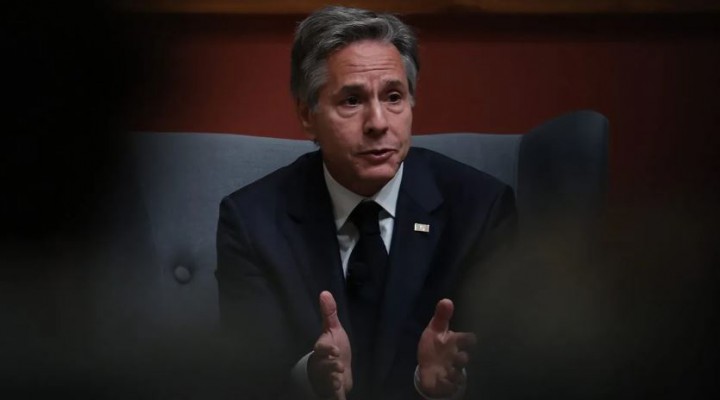Palestinians need more than Blinken’s empty words

With Likud’s Benjamin Netanyahu set to return as Israeli prime minister, US Secretary of State Antony Blinken spoke with Palestinian Authority leader Mahmoud Abbas, spouting yet another round of futile rhetoric about improving the quality of life for Palestinians and, of course, reaffirming Washington’s adherence to the — surely defunct — two-state paradigm. According to US State Department spokesperson Ned Price, Blinken’s call to outgoing Israeli Prime Minister Yair Lapid was very similar to what was told to Abbas regarding deescalating “heightened tensions” in the occupied West Bank. Of course, despite the similar wording, the clear expectation is that Palestinians get the blame and Israel enjoys impunity. It’s business as usual.
Netanyahu’s government is predicted to be the most far-right that Israel has ever had. This means that the Palestinians can expect serious repercussions with Itamar Ben-Gvir, leader of the far right Otzma Yehudit, propelled to a probable ministerial appointment following last week’s General Election. In a call to Netanyahu, US President Joe Biden reassured him of America’s “unquestionable” commitment to Israel and the hope for “more historic peace deals”, a nod to extending the Abraham Accords.
![Israeli election and the possible come-back of Netanyahu - Cartoon [Sabaaneh/Middle East Monitor]](https://i0.wp.com/www.middleeastmonitor.com/wp-content/uploads/2022/11/IMG_5741.jpg?resize=933%2C579&quality=85&strip=all&zoom=1&ssl=1)
Israeli election and the possible come-back of Netanyahu – Cartoon [Sabaaneh/Middle East Monitor]
The Biden administration’s routine reassurances stand in contrast to the losses that Palestinians keep incurring as a result of the US foreign policy’s inherent bias towards Israel. While the US so far seems apprehensive about political cooperation with someone as extreme as Ben-Gvir, the latter’s influence will not be diminished just because of probable marginalisation by Washington.
Netanyahu and former US President Donald Trump left a legacy which has been normalised by the international community. The normalisation agreements with some Arab states are the new veneer of respectability behind which Israel can hone its ability to act with impunity. Meanwhile, the connection between state and settler violence – a permanent fixture of Israeli colonialism – is set to expand in the next government. The international community will, of course, turn a blind eye, as it has throughout the decades. Annexation, which the Trump administration warned repeatedly was merely suspended and not cancelled altogether, will possibly make a stronger comeback with the political inroads that the far right in Israel has made.
With Netanyahu’s win, settlers are expecting an acceleration of the apartheid state’s colonial expansion. While the Abraham Accords have been wrongly credited with preventing annexation, it is more likely that the agreements will provide enough economic incentives for governments to turn a blind eye to the de facto annexation that arises out of Israel’s illegal, colonial settlements and the infrastructure of occupation that sustains them. The two-state compromise, lauded by Abbas despite it being obsolete, is no longer part of official Israeli rhetoric. Lapid’s nod towards the paradigm at the UN General Assembly this year had no value then, and has much less now, not only because the international community has no intention of fulfilling its diplomatic moves, but also because Netanyahu ensured during his previous terms of office that Palestine is a secondary consideration in any agreement with Arab countries.
Blinken’s reassurances to Abbas are futile, to say the least; empty words. Palestinians will be facing a government that will most likely be more vocal in its intent to marginalise and eliminate them, yet Blinken is only able to come up with talk about enhancing Palestinians’ security and freedom. That’s a circle that can never be squared. Palestinians have neither security nor freedom as a result of Israel’s colonial existence. How long, I wonder, will it take the US to renege on its rhetoric for the benefit of Israel’s fake security narrative under Netanyahu’s new far-right regime?
 TheAltWorld
TheAltWorld 
0 thoughts on “Palestinians need more than Blinken’s empty words”